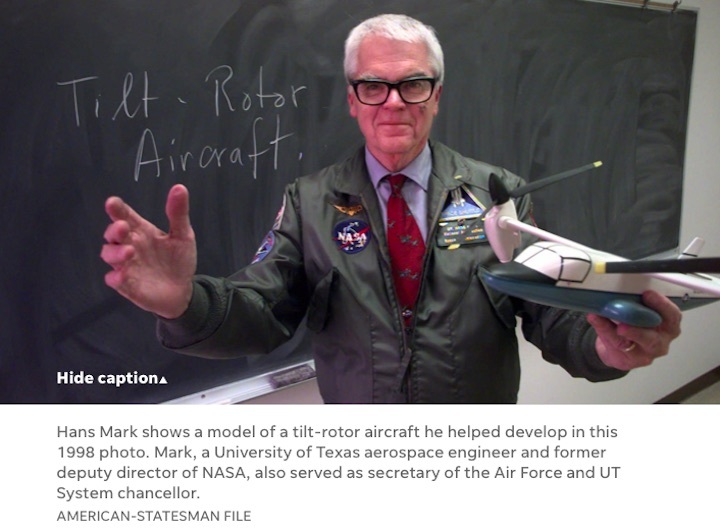21.12.2021

Aerospace engineer Hans Mark, a former University of Texas System chancellor who escaped the Nazis as a boy and grew up to help put a man on the moon, died Saturday morning.
Mark was 92. He died at Westminster senior home in Austin and had suffered from progressive dementia.
A native of Germany who spent his childhood in Austria, Mark served as a longtime aerospace engineering professor at UT, as well as secretary of the Air Force and deputy administrator of NASA. He worked in Mission Control during the first moon landing and persuaded President Ronald Reagan to establish the space station program.
Mark also helped turn UT and the entire city of Austin into research powerhouses.
"Hans Mark was one of the most distinguished scientists at the University of Texas, but beyond his technical and innovative work he took an especial interest in talking informally to undergraduates as well as fellow faculty members," said Wm. Roger Louis, a UT history professor emeritus.
Mark left no question as to the critical importance of exploratory research.
"Because it's in our DNA," Mark told reporter Monica Kortsha for an article republished in Alcalde magazine in 2014. "To explore is an essential part of life, and a great nation has the obligation to explore."
Research, scholarship and teaching sustained his family for generations.
"Hans was a descendant of a long line of scholarly people through his father, Herman Mark," said his wife of 70 years, Marion Thorpe "Bun" Mark, referring to the chemist father who received the National Medal of Science from President Jimmy Carter. "Hans is remembered for his warm support of his students. He was honored for his serious work ethic, modesty, incorruptible character and respect for others. He earned a lot of honors I didn't even know about."
His UT students realized how lucky they were to study with him.
"Dr. Mark is the god of aerospace engineering," wrote one anonymous student in a review on the website Rate My Professors. "Be prepared to worship one of the finest aerospace-engineers-turned-bureaucrats in aerospace history. This guy has had his hands in loads of important projects, met some of the most important people in history — knew Carl Sagan personally — and his stories are to die for. Be prepared to love this class."
